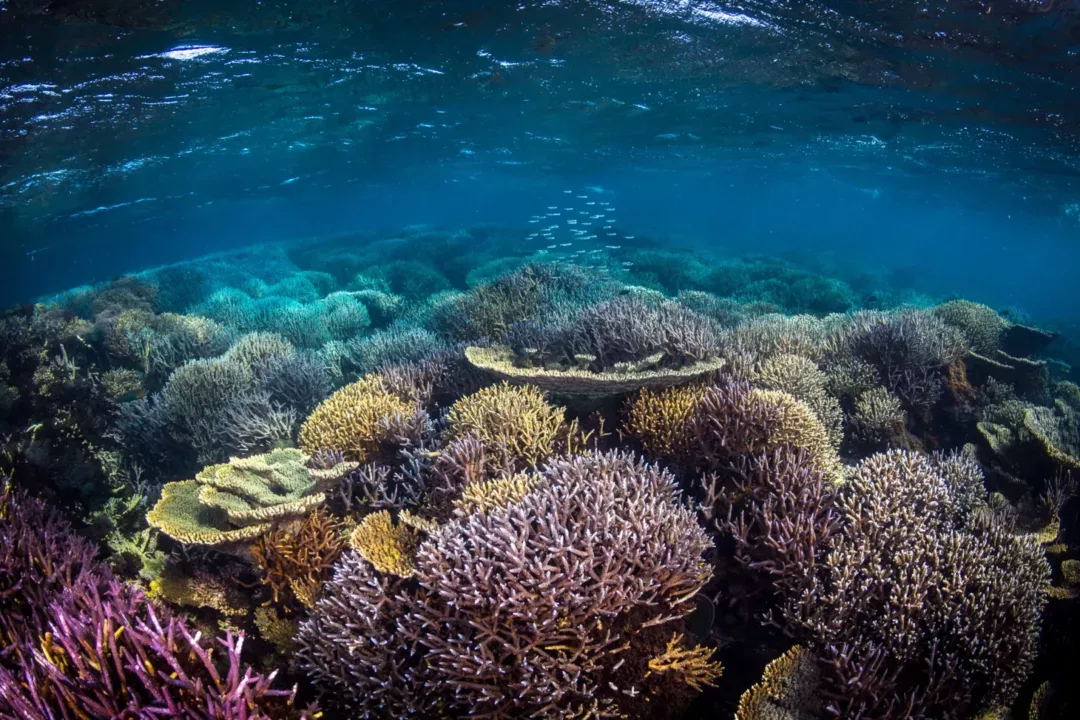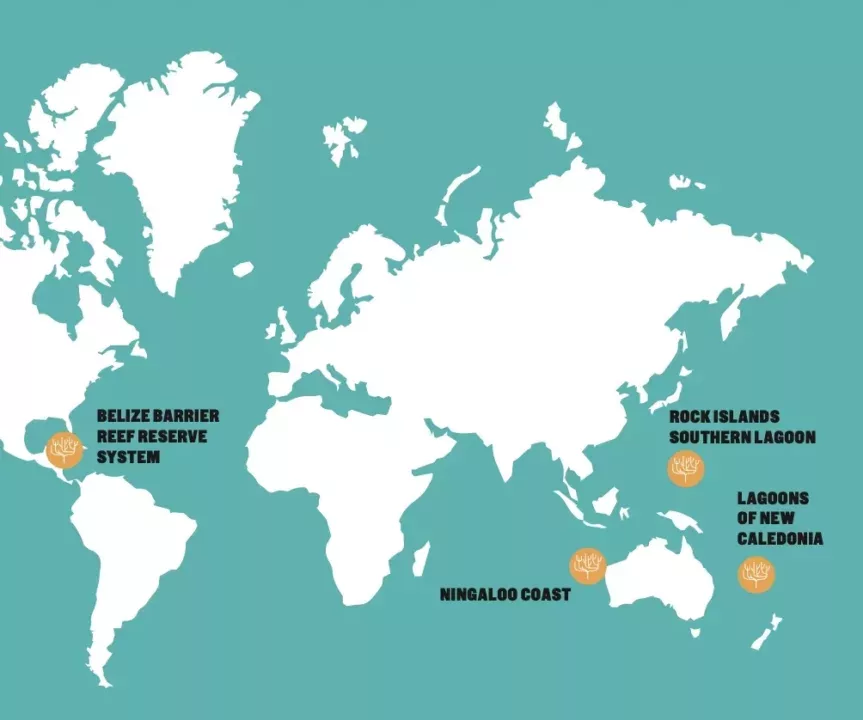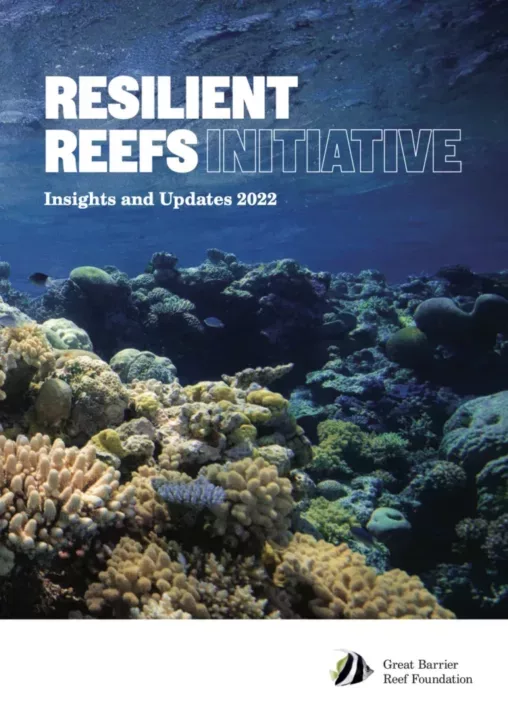Don’t miss the Resilient Reefs’ Insights Report, published at the end of 2022, which summarizes progress and lessons across the Resilient Reefs Initiative, as well as insights on the work happening on ground in each of the partner sites.
The Resilient Reefs Initiative (RRI), pioneered by the Great Barrier Reef Foundation four years ago, is a global partnership bringing together local communities, reef managers, and resilience experts to develop new solutions for adapting to the effects of climate change and local threats, piloted in four sites over 6 years.
The RRI operates in four pilot sites, and partners with local reef management organisations in each: the Ningaloo Coast of Australia, the Lagoons of New Caledonia, the Belize Barrier Reef, and the Rock Islands of Palau.
The Resilient Reefs’ Insights Report collates learnings from the work with partners so far, and next steps for each site and the partnership itself.
The report was released in conjunction with a co-design workshop that was organised in Brisbane, using principles of Resilience-Based Management (RBM) to accelerate design of new projects that will be funded in each partner site.
Resilience-based management (RBM) is a management approach that uses knowledge of current and future drivers influencing ecosystem function to prioritize, implement, and adapt management actions that sustain ecosystems and human well-being (Mcleod et al. 2019).
RBM is a key focus of the work of ICRI, with a dedicated Ad Hoc Committee, and the inclusion of RBM in Theme 1 of the ICRI Plan of Action 2021 – 2024, which focuses on promoting resilient coral reefs, through for instance the application of RBM principles. Learn more about ICRI’s RBM work here.



